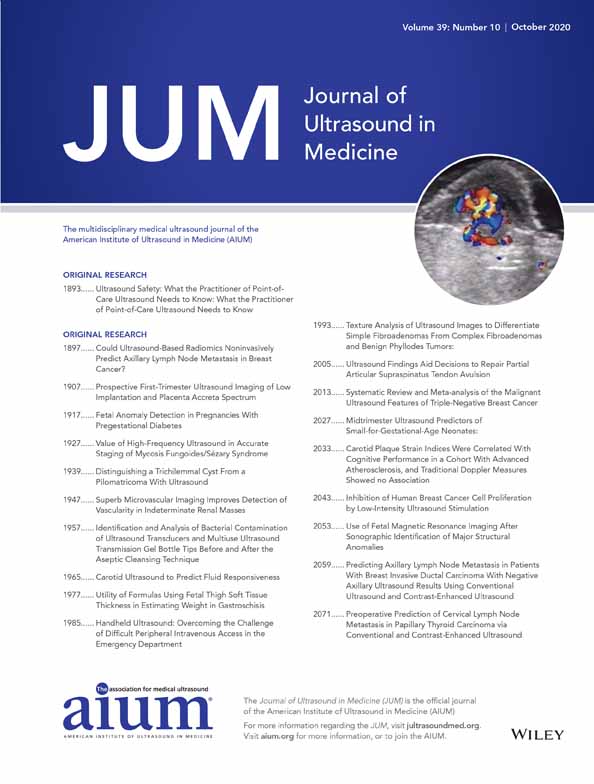Carotid Plaque Strain Indices Were Correlated With Cognitive Performance in a Cohort With Advanced Atherosclerosis, and Traditional Doppler Measures Showed no Association
Abstract
Objectives
Traditional Doppler measures have been used to predict cognitive performance in patients with carotid atherosclerosis. Novel measures, such as carotid plaque strain indices (CPSIs), have shown associations with cognitive performance. We hypothesized that lower mean middle cerebral artery (MCA) velocities, higher bulb–internal carotid artery (ICA) velocities, the MCA pulsatility index (PI), and CPSIs would be associated with poorer cognitive performance in individuals with advanced atherosclerosis.
Methods
Neurocognitive testing, carotid ultrasound imaging, transcranial Doppler imaging, and carotid strain imaging were performed on 40 patients scheduled for carotid endarterectomy. Kendall tau correlations were used to examine relationships between cognitive tests and the surgical-side maximum peak systolic velocity (PSV; from the bulb, proximal, mid, or distal ICA), mean MCA velocity and PI, and maximum CPSIs (axial, lateral, and shear strain indices used to characterize plaque deformations with arterial pulsation). Cognitive measures included age-adjusted indices of verbal fluency, verbal and visual learning/memory, psychomotor speed, auditory attention/working memory, visuospatial construction, and mental flexibility.
Results
Participants had a median age of 71.0 (interquartile range, 9.75) years; 26 were male (65%), and 14 were female (35%). Traditional Doppler parameters, PSV, mean MCA velocity, and MCA PI did not predict cognitive performance (all P > .05). Maximum CPSIs were significantly associated with cognitive performance (P < .05).
Conclusions
Traditional velocity measurements of the maximum bulb-ICA PSV, mean MCA velocity, and PI were not associated with cognitive performance in patients with advanced atherosclerotic disease; however, maximum CPSIs were associated with cognitive performance. These findings suggest that cognition may be associated with unstable plaque rather than blood flow.




